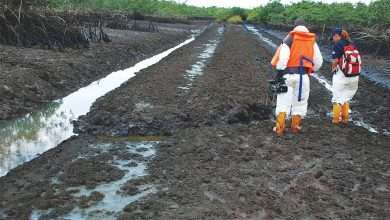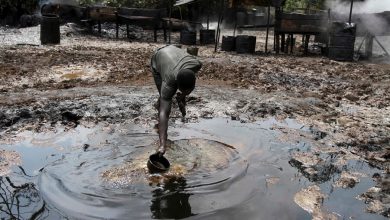gale and Bille, two oil-producing communities in the Niger Delta region of Nigeria have returned to a High Court to challenge the British multinational oil and gas company, Shell Plc over an attempt to delay a legal case against it by the communities on oil spillage and pollution.
The cases were first filed in 2015, but the claims are still at an early procedural stage after Shell spent years trying – unsuccessfully – to stop the cases from proceeding in the UK.
Recall that in 2021 the Supreme Court ruled unanimously that there was a “good arguable case” that Shell plc, the UK parent company, were liable for the pollution affecting the two Niger Delta communities and that the cases should be heard in London.
But law firm, Leigh Day which its international team of lawyers have represented the Niger Delta communities in their eight-year battle to hold Shell to account said that despite the Supreme Court’s ruling, Shell is now arguing that there should be a full trial against Shell’s Nigerian subsidiary, which would take several years, before Shell plc are subjected to the court’s processes, meaning that Shell plc would have no disclosure obligations and would not be under legal scrutiny until after the trial relating to its Nigerian subsidiary was completed.
Leigh Day said that Shell’s applications are part of its attempts to delay legal accountability; saying that the Supreme Court made it clear that the responsibilities and procedures of Shell plc and its Nigerian subsidiary, Shell Petroleum Development Company of Nigeria (SPDC), are intertwined and so the claimants argue that the cases against both must be heard together.
Leigh Day said that the arguments to be heard by the court are particularly important given that the company is currently seeking to divest from the region leaving behind what has been recently labelled by an international commission of experts as an “environmental genocide”.
At a hearing in April 2023 Shell made another attempt to delay the case by arguing that the arguments on points of Nigerian law should be heard first in a separate hearing, which would result in the case being delayed. “The judgment on that point is outstanding.”
Leigh Day partner, Dan Leader, who is leading the claim on behalf of the Ogale and Bille communities said that “Once again, eight years after these claims were issued, Shell are trying to further delay the proceedings and to protect the parent company, Shell plc, from any legal scrutiny. While they deploy a myriad of meritless technical legal arguments our clients continue to live with the devastating impacts of pollution from Shell’s oil pipelines.
“A responsible company would ensure clean up takes place quickly, public health is protected and people whose livelihoods have been destroyed are compensated. But Shell is showing itself to have little regard for the Nigerian communities it has operated in for decades. We hope and expect the court to cut through Shell’s obstruction and progress the litigation quickly.”




